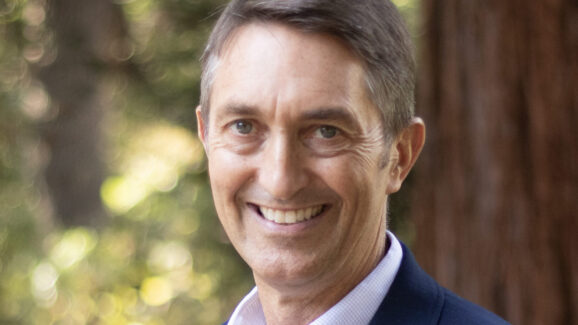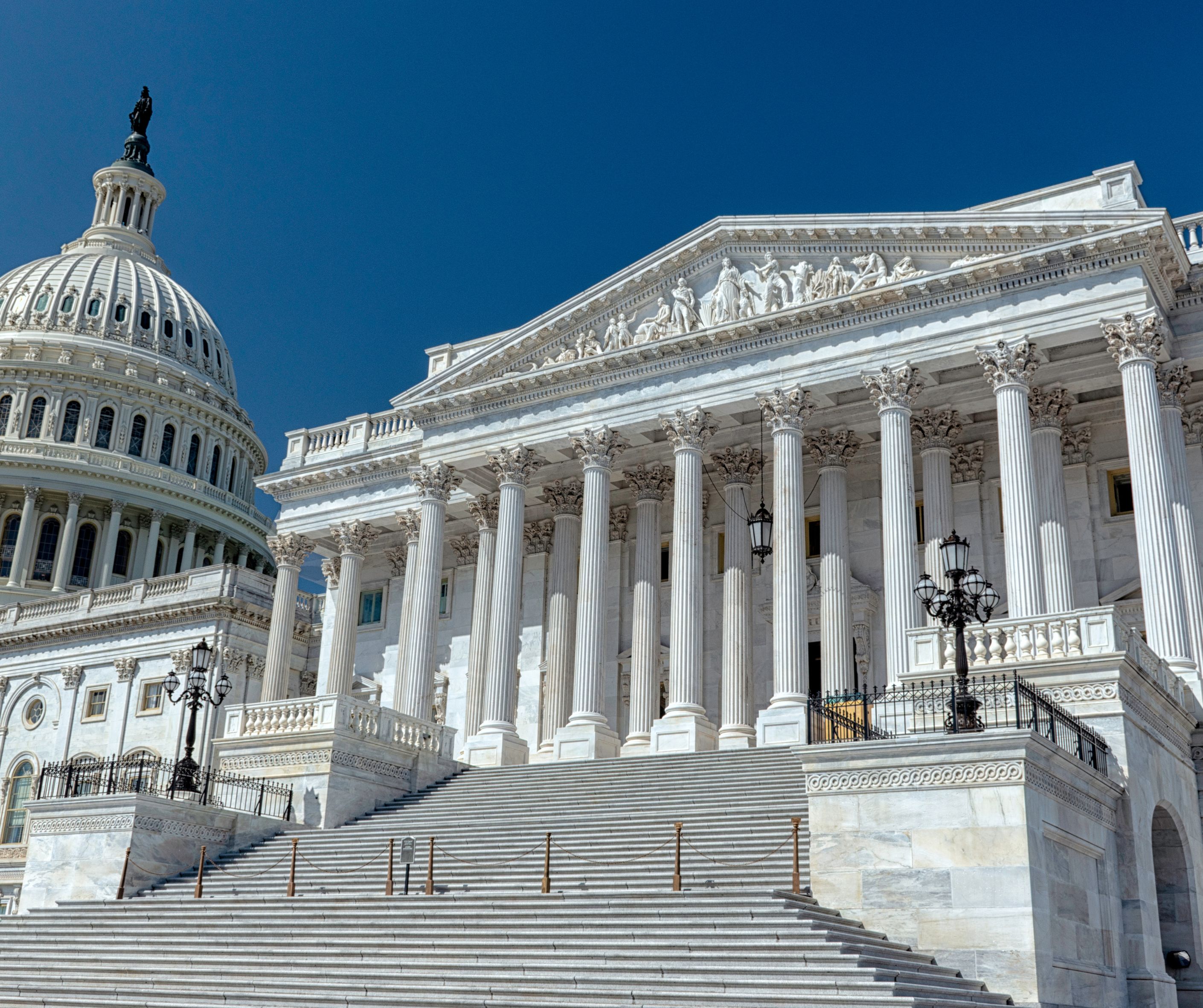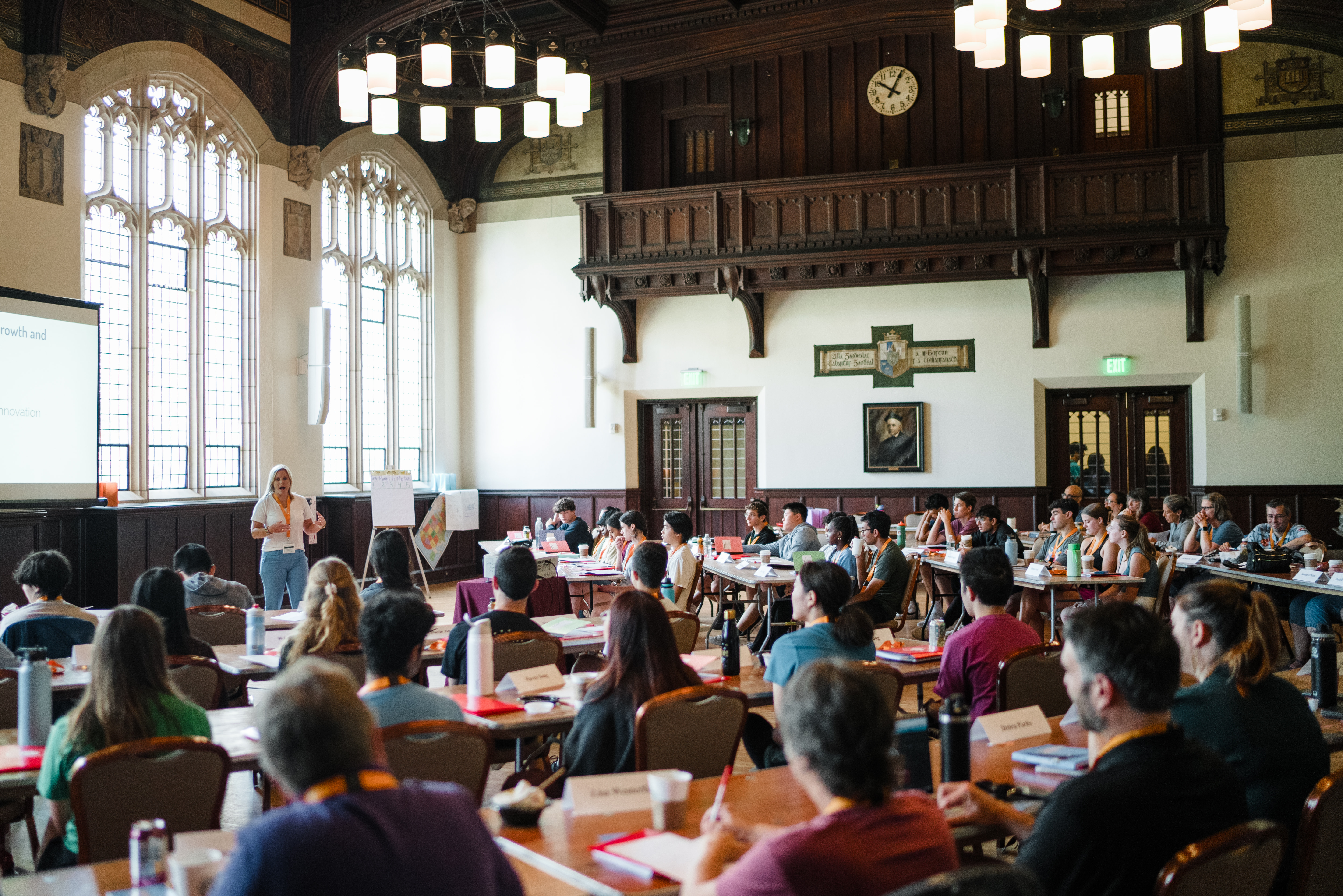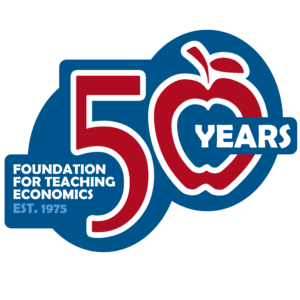FTE: Celebrating 50 Years of Excellence in Economic Education

- >
- FTE News
- >
- FTE: Celebrating 50 Yea…
April 23, 2025
2025 is a special year for the Foundation for Teaching Economics (FTE), as we celebrate our 50th anniversary. In 1975, a successful California business leader by the name of Jack Hume decided to address a concerning society-wide trend he witnessed firsthand. In Jack’s view, young Americans of that time lacked familiarity with the basic economic principles that promoted human flourishing and prosperity.
THE BEGINNING
Towards the end of the U.S. counterculture movement, when many young people had been protesting on campus and exploring alternative ways of living, Hume believed that it was critical for America’s future leaders to understand and appreciate how the U.S. had become the wealthiest country in the world. He felt that by teaching core economic concepts to American students, the nation’s future prosperity would be in safe hands for the next generation. Not long after, Hume founded FTE in San Francisco, turning his vision into a reality.
From the beginning, FTE has embodied the principles of economic freedom. A central tenet of FTE’s mission was helping young Americans understand the fundamental institutions of our system of free enterprise, including voluntary trade, open markets, private property, and the rule of law. To accomplish this, FTE developed a series of textbooks and filmstrips aimed at middle school students, with the goal of getting these materials adopted in classrooms. This remained FTE’s focus for our first decade.
It wasn’t until Jack’s passing that the next chapter of FTE began to take shape. Jack’s sons, George and Jerry, launched a year-long effort with Professor Gary Walton to consider the organization’s future. This review led to the realization that the organization was failing to fulfill its mission. Middle school teachers were not using FTE education materials, such as the textbook, “Our Economy: How It Works,” in their classes. It was clear to Walton and the Hume brothers that the organization needed to be reinvented.
MILTON AND ROSE FRIEDMAN AND THE ECONOMIC WAY OF THINKING
With input from then-board members Milton and Rose Friedman, FTE shifted to developing programs for high school teachers and students, rather than middle schools. Friedman himself provided the rallying cry for the organization’s next step: “FTE should focus on teaching economics to future leaders.” In addition, FTE embraced a more effective pedagogical approach that used experiential learning and economist Paul Heyne’s work on the economic way of thinking. Instead of only producing educational materials for school districts, FTE would actively engage teachers through professional development workshops, a practice that we proudly continue today.
By reinventing itself, FTE prioritized what we refer to as direct impact programs. Instruction focused on interactive activities and lessons to better engage teachers and students in the learning process. To mark this new era in the organization’s history and the launch of the inaugural Economics for Leaders (EFL) program, FTE appointed Professor Walton as President, and relocated its headquarters to Davis, California, where we’ve been based ever since.
It was during this time that I joined FTE in 2000, having previously taught high school in northern Illinois and coached track and field at Beloit College in Wisconsin. My wife first introduced me to the organization while she worked as an FTE program coordinator in the mid-90s, supervising high school student attendees. When we moved from Wisconsin to California, I officially joined the FTE staff. My first job at the organization involved shipping program supplies to the EFL programs, writing marketing copy, and staffing programs. This experience would turn out to be an excellent introduction to FTE from the ground up, providing me with an invaluable knowledge base to lead the organization today.
A NEW STRATEGIC PARTNER
Another significant milestone in FTE’s history came in 2013, when we established a strategic partnership with The Fund for American Studies (TFAS). This partnership was formalized in a merger in 2018, integrating FTE’s programs for high school teachers and students under the umbrella of TFAS’s academic offerings. This timing would prove to be fortuitous, as TFAS provided FTE with the resources to go online during the COVID-19 pandemic and emerge from the pandemic even stronger.
While FTE had always featured asynchronous online classes, we leaned into the virtual learning environment significantly during the pandemic, with new online webinars and weeklong virtual programs for students. In-person programming still makes up most of FTE’s offerings today, but roughly 30% of our workshops are now virtual, a significant increase since pre-pandemic days. Through online learning, we can serve more students and teachers than ever before by offering the convenience of year-round programs, rather than only during the summer.
Thanks to this continued evolution, today FTE is truly a national program, with programs and participants in nearly every state. In 2024, FTE conducted 93 in-person and virtual high school programs, directly reaching 2,781 high school teachers and students. When accounting for the number of young people each individual teacher influences in their classroom, FTE’s potential reach involved more than 195,000 students just last year.
We’ve also seen a growing number of international students participating in FTE programs, and we continue to prioritize developing new funding sources that allow more American students from disadvantaged backgrounds to attend. We often hear from these students that participating in an FTE program helps them realize they are just as competitive academically as their peers who may come from more privileged upbringings.
LOOKING TO THE FUTURE
What do the next 50 years look like for FTE? We continue to see strong demand for our high-quality economics and leadership programs, both in-person and virtually. Looking ahead to the next decade, I foresee the organization doubling our participation numbers from where we are now. FTE is currently on a solid growth trajectory, which is incredibly exciting.
Moving forward, our challenge and opportunity will be to develop new programs that teachers and students continue to find valuable, while also maintaining the high level of academic rigor and quality that has been a hallmark of FTE since its inception. Developing new programming is a time-intensive process, involving consultations with experts, feedback from students and teachers, and field-testing new activities in classrooms nationwide to ensure the materials are both effective and memorable. FTE will continue to evolve and adapt to the times, while maintaining our commitment to the high-quality teaching that is central to our mission.
FTE also continues to stay relevant in terms of our program offerings. Amid public opinion polls showing that young Americans display an increasing interest in socialism, FTE recently developed a new curriculum exploring the realities of socialism and its failures as an economic system. This year, we’re launching a new program, Entrepreneurship: Economics of Innovation, covering timely topics in the news such as AI, entrepreneurship, tariffs, and risk. And, with the nation preparing to commemorate the 250th anniversary of the signing of the Declaration of Independence, FTE curriculum writers are already creating new lessons as part of our nation’s celebration.
Reflecting on the 25 years since I joined FTE and the 50 years of the organization, it’s clear that much has changed in terms of how we teach, who we teach, and where we teach. What’s remained consistent, however, is our mission to promote excellence in economic education. Whether it’s 1975, 2000, or 2025, FTE promotes a model of pedagogy that is standards-based, integrates the most recent academic scholarship, and engages teachers and students with relevant activities and lessons from outstanding academic instructors. I’m excited to lead FTE into the future as we continue to promote the economic way of thinking and economic freedom among the next generation of American high school teachers and students.

Tell Our Elected Officials to Enroll in FTE Programs, Please!
January 30, 2026 Despite last-minute negotiations late this week, President Trump and congressional leaders appear to once again be on…

Foundation for Teaching Economics Opens Student Application for Summer 2026
January 12, 2026 The Foundation for Teaching Economics is pleased to announce that applications for Summer 2026 student programs are…

Making Economics Meaningful for Students
December 19, 2025 The Fund for American Studies’ Liberty and Leadership podcast features FTE’s own Amanda Stiglbauer, a longtime member of our…

